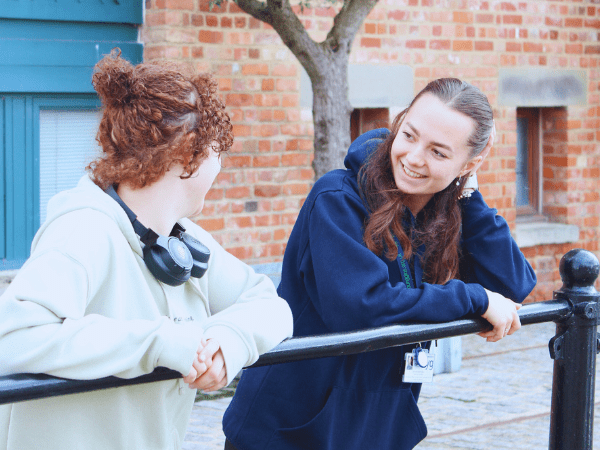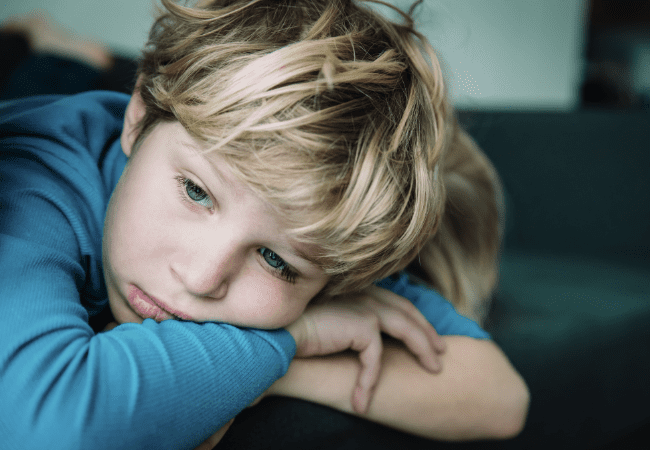
Tracy Clark shares her experience of leading two charities though the Covid 19 Crisis.
22 April 2020
“I am CEO of two charities, Infobuzz and Young Gloucestershire; the last four week have been some of the most challenging in my career.
“This will be the same for many as we all face unprecedented times. I thought I would take a little bit of time out to reflect on the last few weeks and share some of the thoughts, challenges and successes we have faced.
“When it became clear that lockdown was imminent, I realised that we were going to have to move fast to make some decisions about how we respond. There were critical factors in my thinking: how were our young people and families going to cope, staff well-being, morale and resource, funding and the impact on services.
“It was key that we got our staff mobilised to work from home quickly and safely, that we developed online policies for services, that we understood how to use technology and that everyone was trained how to do so. The two weeks prior to the lockdown announcement were spent putting all this in place. Due to our remote style of working, we already had the IT systems, so it was more a case of staff training and processes being put in place.
“The hardest decision for us was the closing of our group work delivery, this includes Prince’s Trust Team, qualifications for our families and Connect our alternative education provision. These services are delivered in groups which makes it very difficult to continue to deliver whilst adhering to social distancing. However, this decision was quickly followed by alternative services for these young people and families to engage in.
“It was critical that we developed new services to ensure that the most vulnerable of our young people/families are supported and have crucial lifelines at this time. As a result, we developed several new services;
“Link Chat – a service that all our Prince’s Trust Team and Connect young people were referred to as well as many more. This is the opportunity for a young person every day to have a check-in with a youth worker. This can be a lifeline; to support young people’s mental health and ensure they are keeping safe. This service alongside the delivery of our care packages which include food, toiletries, resource packs and wellbeing resources, ensure that young people and families are safe, fed and have material to keep them well at home.
“The other critical service we launched is detached youth work, YG and IB are fortunate to have longstanding positive working relationships with the police. This meant we were able to quickly meet and explore a partnership to educate and inform young people rather than criminalise, once the new guidance was launched from government. The largest concern for us is that home isn’t safe for all young people, and we wanted to be able to support young people who are finding this challenging and may be leaving home as a result of this.
“We knew we needed to provide these new services, but we also knew we needed to keep our staff safe, implement social distancing and reallocating staff from their normal day-to-day role. This took some thinking and some difficult decision making; at no point did we want to put our staff at risk. Put simply, we wanted to make sure we provided support to those who we care about and who we exist as a charity to serve.
“Crucial to this was staff training, PPE, changing our working practices to ensure there was no sharing of vehicles and reducing individuals in our buildings which then enabled staff to social distance safely.
“The hardest part of the whole decision-making process is getting the balance between keeping staff safe and doing what needs doing for young people and families that we are concerned about.
“YG and IB as with all charities have a business continuity plan that is in place for significant events; when this was written we mainly thought about the loss of buildings through fire or a significant loss of funding income. However, the elements within the policy showed that we were prepared and we did have plans in place that we could implement! One of the best decisions we have made in the past that really helped in this time was in relation to IT. Over the years we have fundraised to ensure that all staff have a laptop and mobile phone, this allows them to work efficiently when in normal working world, in lockdown it meant that this efficiency wasn’t challenged and all staff were able to work from home seamlessly.
“Our initial focus was moving existing services online and then developing new services, we have now managed to do this. The next step for us is to focus on how to transition out of COVID. There will be a lot of need in the most vulnerable communities in Gloucestershire when people get back to the new kind of normal. YG and IB want to be prepared for this and we are turning our attention to it. Our thinking and planning is now based on the next twelve months and our strategy for this. However there is always a bit of me that wonders if we are doing enough now and whether there is more we should be doing.
“YG and IB has been incredibly fortunate to have some positive and longstanding relationships with funders. Very early in lockdown we started speaking to funders, sharing our plans and exploring options for funding. We are particularly grateful to the Office of the Police Crime Commission, Gloucestershire Clinical Commissioning Group and Gloucestershire Community Foundation who were very quick to work with us on our plans. In addition we have seen support from Severn Trent foundation, Thirty Percy, Langtree foundation and many more.
“When you find yourself in a position where you have lost 20% of funding overnight (about £200,000) due to having to close all your payment by results work, it is a scary and challenging time. Balancing this pressure with that of staff well-being and young people and family needs has been the hardest challenge. We have a long way to go in terms of raising the funding we need to keep going, and much of our time and energy is being spent on generating new sources of income.
“Another big debate for us is furlough; this is an option and could have been used for a number of our staff as their usual day-to-day role doesn’t currently exist. However there is so much work to do it is difficult to furlough. The work to be done might not be their usual job but it is in the same field supporting some of the most disengaged and disadvantaged young people and families in our county. Furloughing staff and leaving no support for those young people and families was not an option. We continue to review this decision and the Trustees have agreed to some of our reserves being spent to continue these services. We have given it until the middle of May and if we haven’t secured much needed funds we will review again and explore other options to save money.
“The crisis is an interesting one, one of the positive things that has come from it is we have learnt that there are some things that we do that could be more efficient. We have learnt we can see more clients if we are not travelling, we have learnt online is better than phone support, we have learnt that young people are missing less appointments at the moment than previous to lockdown. All of this learning will be taken into the planning of our next steps.
“We are anticipating that post Covid-19 will be a new type of normal, we won’t be returning to the world we left we will all be different people and there will be new challenges in the world that we all need to face. We are aware that unemployment rates will increase, people’s mental health will be poorer and there will be challenges presented by being trapped at home. We will ensure that our future services are adapted to meet these need.
“We feel lucky that several things we had in place such as our remote working IT system put us in good stead to deal with this crisis, and we will be reviewing the areas that we weren’t prepared in to ensure that in the future we might be. The interesting challenge for the sector is that we have always worked hard to diversify our funding and have sought to generate 20% of our income through contracts and traded business that allow us to contribute to core costs and make the charities sustainable. In these challenging times this is the part of our business that lost income, and what makes it harder this is the part of our income that ensures sustainability and contributes a significant amount to our core costs.
“We need to reflect on what we have learnt from this and review our business model moving forward. My current gut feeling is that our business model of 20% generated business is right and it is purely an unprecedented situation that has left us in this position, but there is much more debate to do on this yet. I am really grateful to all those who have lent me an ear for debate, explored solutions and have shared their concepts. All of which have allowed YG and IB to grow and develop to be where we are today, every day is a learning curve and no one can move through these times alone. It feels like we can never do enough and we have to prioritise our energy and focus to ensure that the charity does not lose it way. Critical to the success we are seeing is the amazing staff teams at YG and IB who have adapted their job roles, faced challenges head on and fundamentally put the young people and families we work with at the centre in these challenging times and I will be forever grateful to them for this.
“Overall I think the charity sector will need to continue to work closer together, collaborate and merge charities so there are less overheads and more efficiencies in the system to find a way we can meet the needs of our community better. It feels like this new journey has only just begun and there are lots more difficult decisions to come, but we are ready to ride the storm.”
If you would like to find our more about how you can support the work of Young Gloucestershire or Infobuzz please get in touch. getinvolved@youngglos.org.uk
You may also like...
The Story of an Arcus Family

Supporting Ukrainian Refugees

Understanding the ‘Hidden Victims of Crime’ Project

World Suicide Prevention Day 2024

